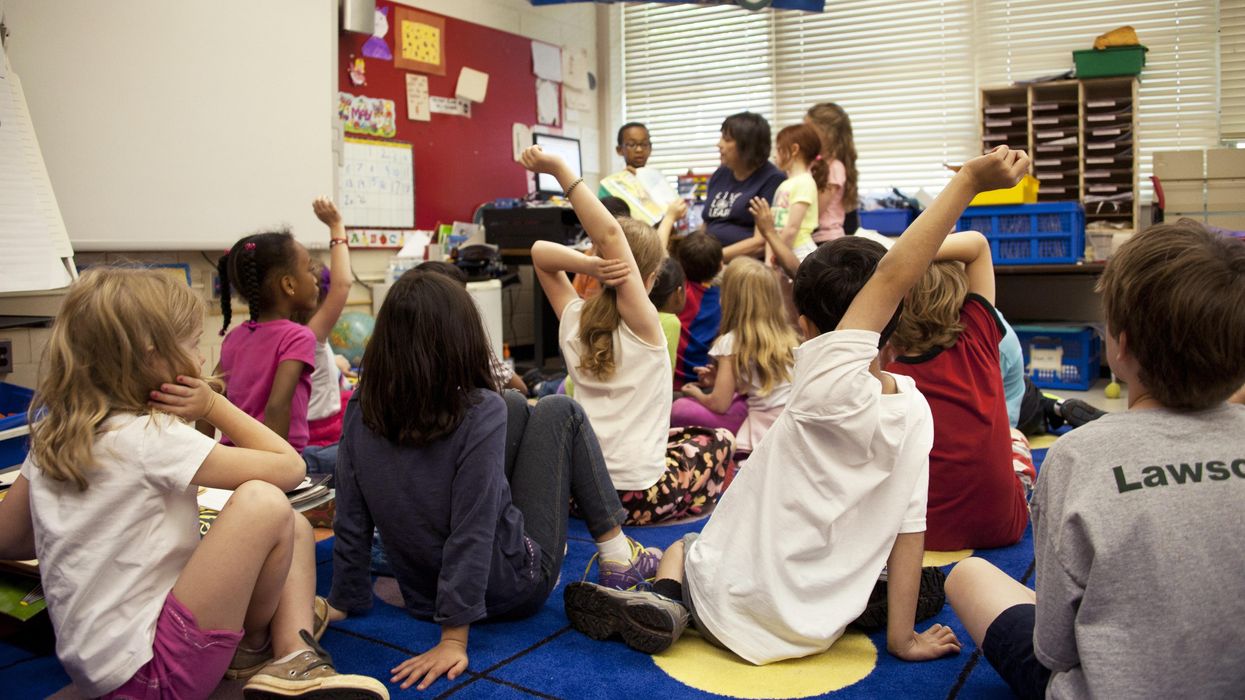
Here are two terms that you don't expect to see together: "the state of Alabama" and "progressive leader." (OK, I'm a Texan and so have no standing to point at the rank regressiveness of any other state government ... but still, Alabama?) And yet — even with its well-earned reputation as a bastion of Jim Crow vote theft, plutocratic anti-worker policies and right-wing nutballism — the Camellia State has flowered as a model of strong progressive action in one area of critical public importance: quality child care.
It's a cliche to say, "our children are our future," but it's also true. Then why do we invest so little in our littlest ones, our future? Both in providing safe places for children of working parents and for boosting the education of pre-kindergarten tykes, America's child care system is a national disgrace. Moreover, the abject failure of state and national officials to meet this basic social need is spreading inequality, rolling back opportunities for women and severely restricting economic recovery.
How impressive is it, then, that Alabama officials (often vying to win that coveted 50th spot as America's worst state for meeting people's needs) have recently been setting the national standard for effective pre-K programs? Beginning 20 years ago with a small budget and eight classrooms, Alabama's investment in 4-year-olds now operates statewide in about 1,300 neighborhood and rural facilities. It prepares some 21,000 children each year to be "kindergarten-ready" — able to succeed from day one of entry into the K-12 educational years. A major factor in its success is a two-generation approach, not only educating the kiddos, but also providing support materials and coaching so that parents engage as their children's "first teachers."
Producing demonstrable results year after year, the state's public investment in children and families gets bipartisan support and funding from the Alabama Legislature. The program is voluntary, free and available to all, with special attention devoted to enlisting often-overlooked families in rural, poor and racial minority communities. "We evaluate everything through an equity lens," says Dr. Barbara Cooper, Alabama's secretary of early childhood education. "Everything" includes teachers. Rather than treating them as low-paid babysitters as so many programs do, Alabama is paying (and respecting) them as the professionals they are and investing substantial state money into their career development. "We are laser-focused on retaining the highest-quality educators and providers for our youngest learners," Cooper proudly says.
Alabama! If one of our poorest states can rise to meet this basic human need, what's wrong with the richest country in the history of the world? Nearly every other nation with an advanced economy (and some not-so-advanced) treats child care as a fundamental public good essential to nurturing children, families and the economy. But our US of A relegates millions of working parents and 21 million kids under 5 to the tender mercies of a for-profit market, with providers ranging from impossibly expensive to the helter-skelter messes of unlicensed Kiddie Korrals. The right-wing super-nationalists who mindlessly salute the U.S. as "exceptional" fail to note what is actually exceptional about our "child care system": It is such a shambles that it can't even be called a system, much less caring.
For the past decade, independent journalist and economic analyst Bryce Covert (brycecovert.com) has documented the worsening social crisis caused by this abject failure of leadership. Her recent report paints a dire picture of huge and obvious need:
— Two thirds of our pre-K kids have both parents in the workforce, meaning care outside the home is essential.
— 85 percent of the parents of these young ones say that finding quality, affordable child care in their area is a problem somewhere between serious and impossible.
— Nationwide, the annual cost for a four year-old's day care averages about $13,000. In 28 states and D.C., an infant's care center costs more than an 18-year old's public college tuition.
Despite millions of working families finding this essential service unaffordable or even unavailable, political leaders have ignored their plight. What meager federal spending there is hasn't even kept up with inflation. At its lowest level in a dozen years, child care aid now reaches only 15 percent of qualified kids. (Note that some callous governors, including ours in Texas, divert chunks of federal child care subsidies to their own political priorities, such as border walls and corporate welfare.)
In 2017, even before COVID-19 abruptly shut down thousands of care centers, 40% of America's children lived in "child care deserts" — zip codes with zero programs or so few that two-thirds or more of the area's children are unable to get in. We need to do better for our children; they are the future, after all.
To find out more about Jim Hightower and read features by other Creators Syndicate writers and cartoonists, visit the Creators webpage at www.creators.com
- What The Religious Right Calls 'Christian' — And True Christianity ... ›
- Why Is The 'Quits Rate' Skyrocketing Now? - National Memo ›
- Trust Us, We're Only Spying On You - National Memo ›
- There's Rich, Ugly Rich, And Jeff Bezos - National Memo ›
- Work, Sweat, Die: The Price Of The Hottest Jobs ›
- Did America Ever Care About Kids Enough To Provide Quality Child Care? Yes - National Memo ›
- Child Care Services Division – Alabama Department of Human ... ›
- Child Care | Alabama Department of Public Health (ADPH) ›
- New documentary highlights Alabama's First Class Pre-K program ... ›
- Federal funds set for child care providers across Alabama ›
- News Release: Alabama's Economy Depends on Working Parents ... ›








